Are damaged, misshapen, or discoloured teeth affecting your self-esteem? Dental veneers can improve the overall appearance of teeth and give you a boost of confidence. They are a popular choice among individuals that do not respond to other dental treatments such as retainers, braces, or teeth whitening.

What Are Dental Veneers?
Dental veneers are thin, custom-made fittings that get bonded to the front of teeth to hide imperfections and improve the appearance of your smile.
Veneers can provide a long-term solution to a variety of cosmeetic dental issues such as:
- Chips
- Stains or discolouration
- Worn down teeth
- Minor damage
- Overall appearance
- Unevenness
- Decay
- Crookedness
- Gaps in the teeth
What are the Benefits of Veneers?
Dental veneers offer a variety of advantages such as:
- A natural, healthy tooth appearance
- The gums tolerate porcelain well
- They are resistant to staining
- A white colour can be chosen to brighten dark teeth
- They tend to look better and be more durable than crowns
What is the Veener Treatment Process?
The veneer treatment process typically involves at least three visits to see us. The first trip consists of a consultation with us, we discuss your options and how we can help. During the other two trips are dedicated to applying & fitting them.
To prepare for a veneer, the tooth’s enamel is trimmed reshaping the tooth’s surface. An impression of the tooth is taken so that a model can be made. This model can then be sent to a dental laboratory to create the veneer. While it is created (this usually takes about two to four weeks), temporary ones can be used.
Once the veneer is created, we will examine its fit and colour, trim it to achieve the best fit, and permanently cement it to your tooth. The colour can be adjusted by using different shades of cement.
Considerations for porcelain veneers:
- Stronger and more durable than resin composite veneers
- More costly
- They have the same colour as natural teeth but can be adjusted to brighten the smile
- More resistant to stains
- Mimic natural teeth more since they are better at mimicking the light reflecting properties of natural teeth
Considerations for resin-based composite veneers:
- More affordable than porcelain veneers
- May not last as long
- May break more easily
- Require less enamel removal
- Easier to replace if damaged or broken
Before & After Treatments
Here are some of the results we have managed to create for our clients. Results may vary from client to client depending on their dental issues and considerations. Be sure to consult your dentist for an individualised treatment plan.
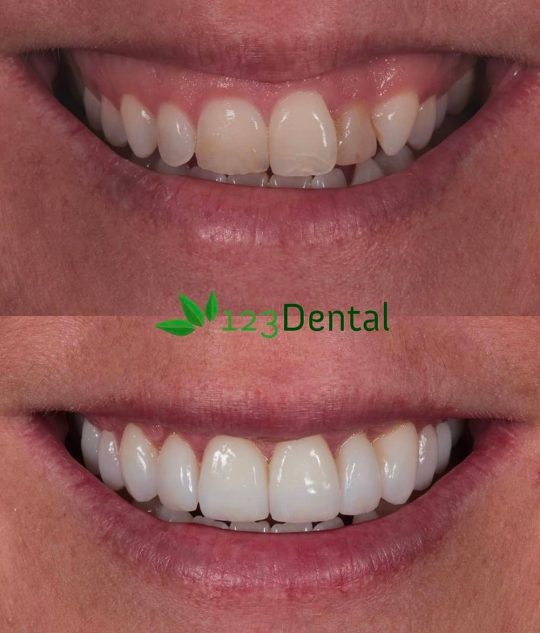
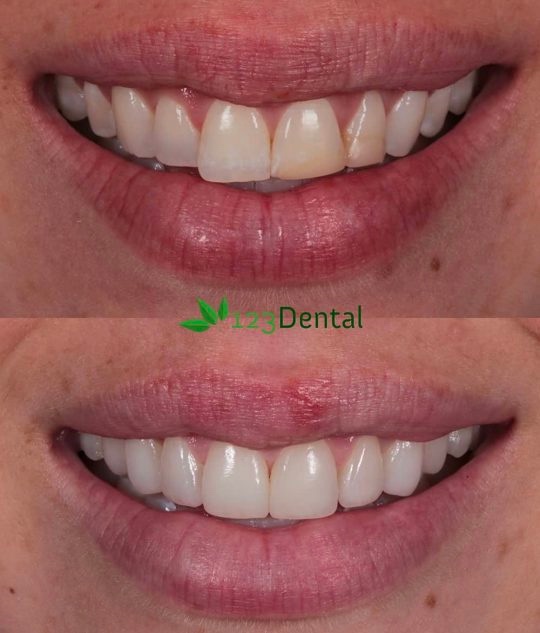
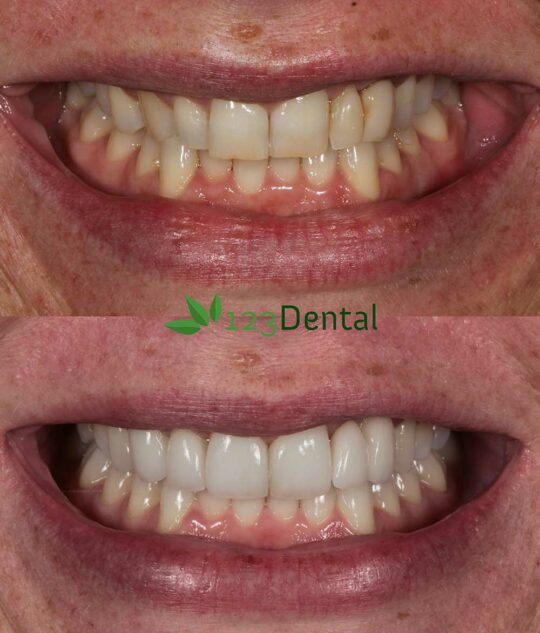
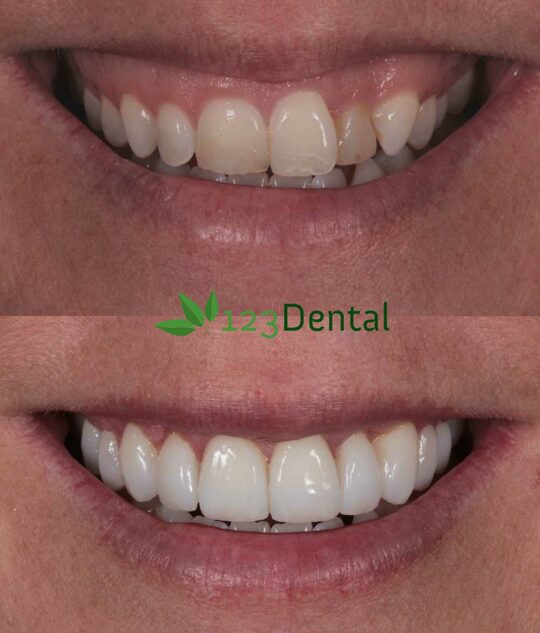
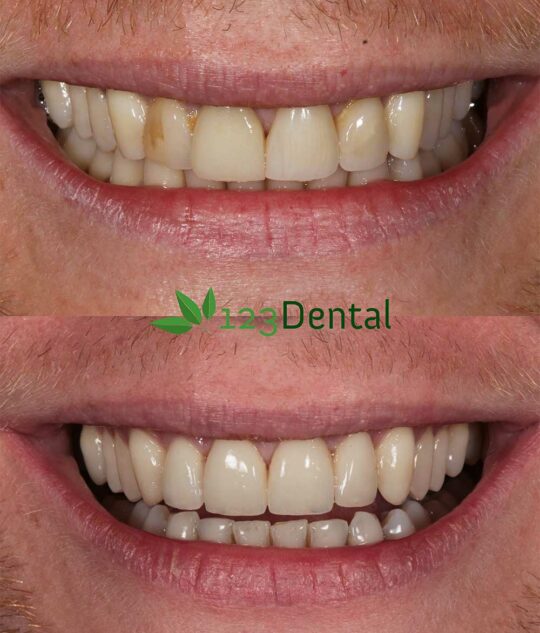
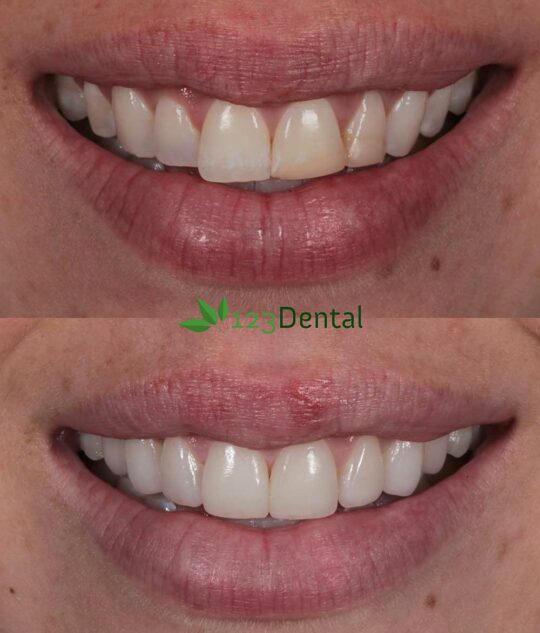
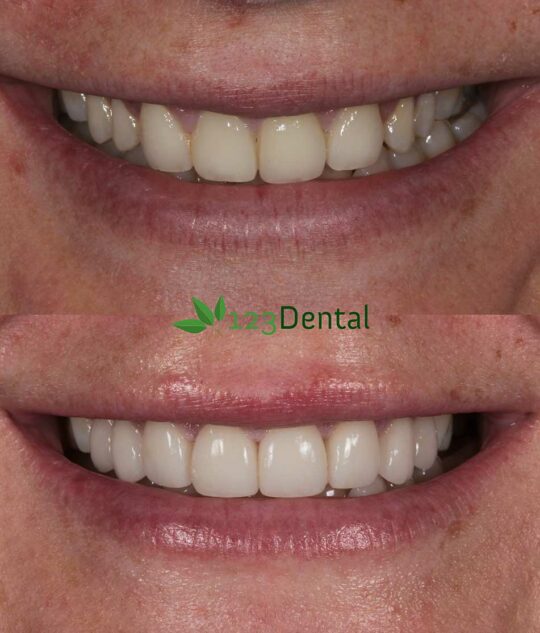
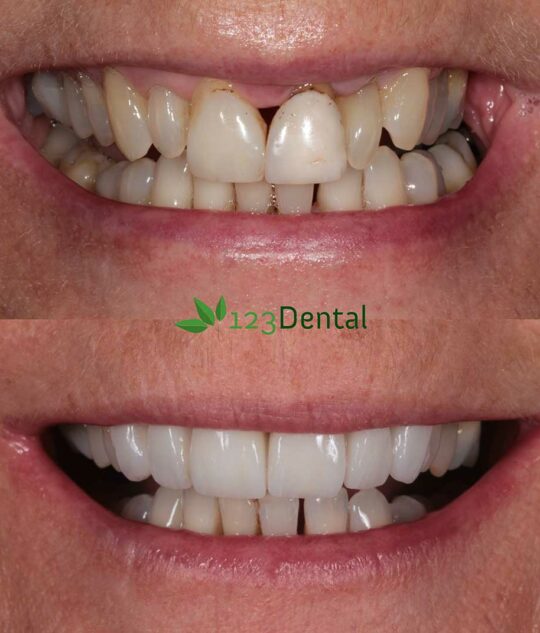
Start Your Veneers Journey Today!
Get in touch with us and we can book you in for the start of your Veneers treatment plan!
Veneer FAQ’s
Who Needs a Dental Veneer?
Should I Choose Porcelain Veneers or Composite Bonding?
Are There Drawbacks to Wearing Veneers?
- Once on, you can no longer remove veneers.
- Teeth sensitivity to hot and cold may increase.
- Veneers do not mean that you can no longer have cavities.
How Do I Make Sure My Veneers Match the Natural Colour of My Teeth?
Will the Process Hurt?
How Long Will Veneers Last?
What are the Best Ways to Maintain Dental Veneers?
- Avoid grinding or clenching your teeth. If you have bruxism where you cannot control the clenching at night while you sleep, you will have to wear a bite splint.
- Brush and floss properly and regularly.
- Stop eating ice, hard candies and nuts, popcorn, and caramel apples, among others.
- Wear a mouthguard if you play any sport.
- Stop nail-biting, fork nibbling, opening packages, undoing knots, and other bad teeth habits.


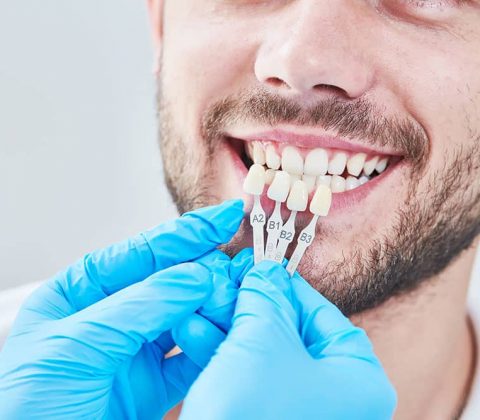

 Hi, you’re chatting with Chloe. If you could please fill out all your details below, I will be in contact with you shortly.
Hi, you’re chatting with Chloe. If you could please fill out all your details below, I will be in contact with you shortly.